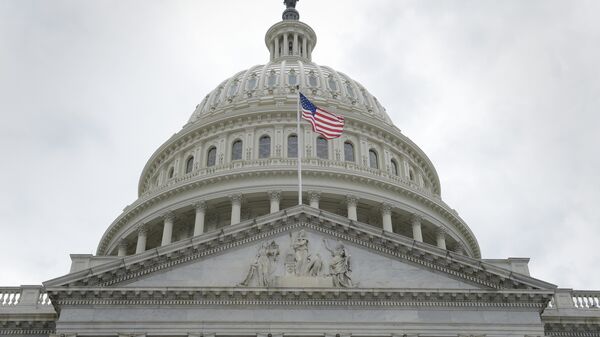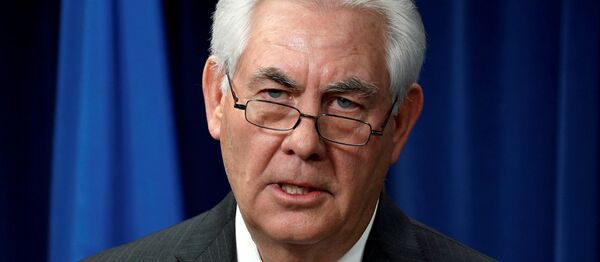On Monday, Vice President Mike Pence, speaking on a visit to Georgia in the Caucasus, said Trump would sign the measure into law "very soon." As well as imposing new sanctions on Russia, Iran and North Korea, the legislation limits Trump's ability to lift the anti-Moscow restrictions. On Friday, the White House said that Trump intended to sign the bill.
CONGRESSIONAL OBLIVION
Yet almost no one in either chamber of Congress who voted for the sanctions bill realizes the damage it could cause to US business, diplomatic and strategic interests, especially in Europe, Australian foreign policy analyst Crispin Rovere explained.
"Although Congress voted overwhelmingly in favor of new sanctions against Russia, few actually understand what the sanctions entail: It won’t just be EU interests that are affected, but US companies could be impacted as well, regardless of any retaliation from Russia," he warned.
The major EU nations and the European Commission in Brussels would not support Washington in enforcing a sanctions regime that they did not want, were never consulted about and that would harm their own companies, Rovere explained.
"The Europeans are not going to enforce sanctions that they weren’t involved in drafting and that adversely impact EU companies," he said.
The sanctions were designed to weaken trade ties between Europe and Russia but if they succeeded in their aim they were bound to cause resentment among the Europeans that would further weaken transatlantic ties with Washington, Rovere predicted.
"If the Europeans fail to obtain adequate assurances that new sanctions will not impact their business interests, the result will be a weakening cohesion in the sanctions regime and further disagreement between the United States and the Europe over how to manage Russia going forward," he said.
Senators and members of Congress had failed to think through the implications of passing the sanctions in their determination to prevent Trump from improving US relations with Russia, Rovere charged.
"This is one of the many consequences of differing arms of government in the United States seeking to wrest control of foreign policy from the president," he said.
RUSSIA’S RESPONSE
Within a week of the sanctions being approved by the House on July 24, Russian President Vladimir Putin announced on Sunday that the US government would have to remove 755 of its 1,200 diplomatic representatives in Russia.
The Russian-mandated measure was likely to have immediate consequences even on the personal lifestyles of the remaining US diplomats still working in Moscow, Clarke suggested.
Technical infrastructure used by US officials at the Embassy was also likely to suffer as a consequence of the staffing cuts, Clarke continued.
US officials in Moscow should also anticipate having to cope with "more Embassy vehicles falling out of service," he added.
The cuts are to be completed by September 1, the Russian Foreign Ministry announced on Friday.
The move came as a response to the administration of then-US President Barack Obama imposing a number of sanctions against Russia in December 2016. The sanctions included expelling 35 Russian diplomats and closing two Russian diplomatic compounds.
The bill is also designed to limit Trump’s ability to lift sanctions against Russia.
However, Pence said on Tuesday in Georgia that the legislation still allows Trump and the State Department to manage foreign policy.



